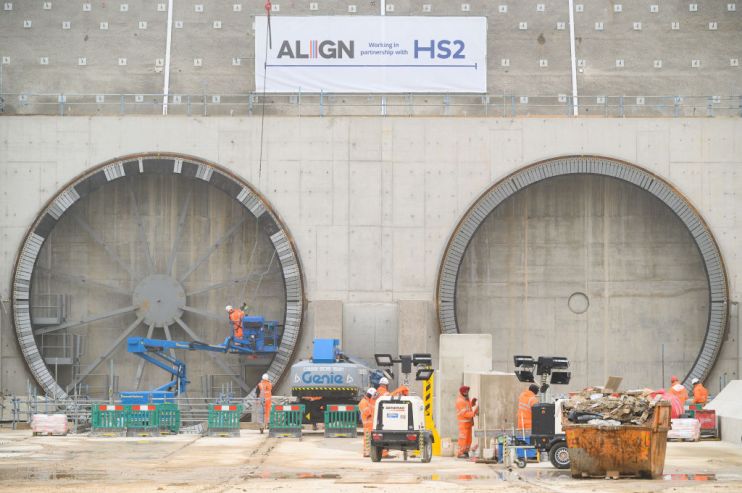HS2 minister: Covid crisis has ‘strengthened’ case for high speed rail link

The case for the controversial HS2 rail link has been bolstered by the coronavirus pandemic, the minister responsible for the project has told lawmakers.
Speaking to the Transport Select Committee, Andrew Stephenson hit back at growing concerns that the current crisis has made the high speed line unnecessary.
“You can argue that Covid has affected the business case [for HS2]”, he said. “But it’s worth thinking about the whole picture.
“If you look at the importance of infrastructure projects to the recovery of our nation after Covid, then I think the crisis has strengthened the case for it, not undermined it.”
He also said that electing to scrap the project would send a “terrible signal” to the world.
“It would send a terrible signal out globally about the UK if our first reaction to the COVID pandemic is to cancel major infrastructure projects, which have been talked about and committed to by successive governments now for more than a decade.
“If that was our reaction it would have a chilling impact on the construction sector”, he added, saying that if work was stopped 13,000 employees would lose their jobs.
Prime Minister Boris Johnsin has cited HS2 as central to the UK’s plans to “build back better” after Covid, but with the huge drop off in rail passenger numbers questions have been asked as to whether the project is still viable in its current form.
Railway bosses have estimated that one in five rail services would not return after the pandemic ends due to the massive fall in demand.
Stephenson said that it was important to think about the project over the long term, rather than in the immediate future.
The first leg of the project – from Old Oak Common in west London to Birmingham – is set to open between 2029 and 2033, with further legs to Manchester and Leeds to follow.
Before the Open: Get the jump on the markets with our early morning newsletter
Construction on the fully-electrified line began in September, and HS2 chief Mark Thurston told MPs that work was on schedule so far.
The first phase is slated to cost £40bn, of which over 50 per cent has either been already spent or committed. The Department of Transport (DfT) is currently estimating a cost of £98bn for the whole line.
However, it was added that as a result of the pandemic, some inevitable cost increases may have been incurred, but Stephenson said full details would follow in his next six-monthly report to Parliament.
He did, however, say that Euston station was proving the main challenge to the delivery of phase one on time and on budget. In October, it was revealed that extra work at the station could increase the phase one budget by £400m.
“Euston is without doubt the biggest risk currently facing us on phase one”, he said, labelling the extra cost pressures “very concerning”.
Rail execs are considering plans to reduce the number of platforms at Euston from 11 to 10 in a bid to cut costs.